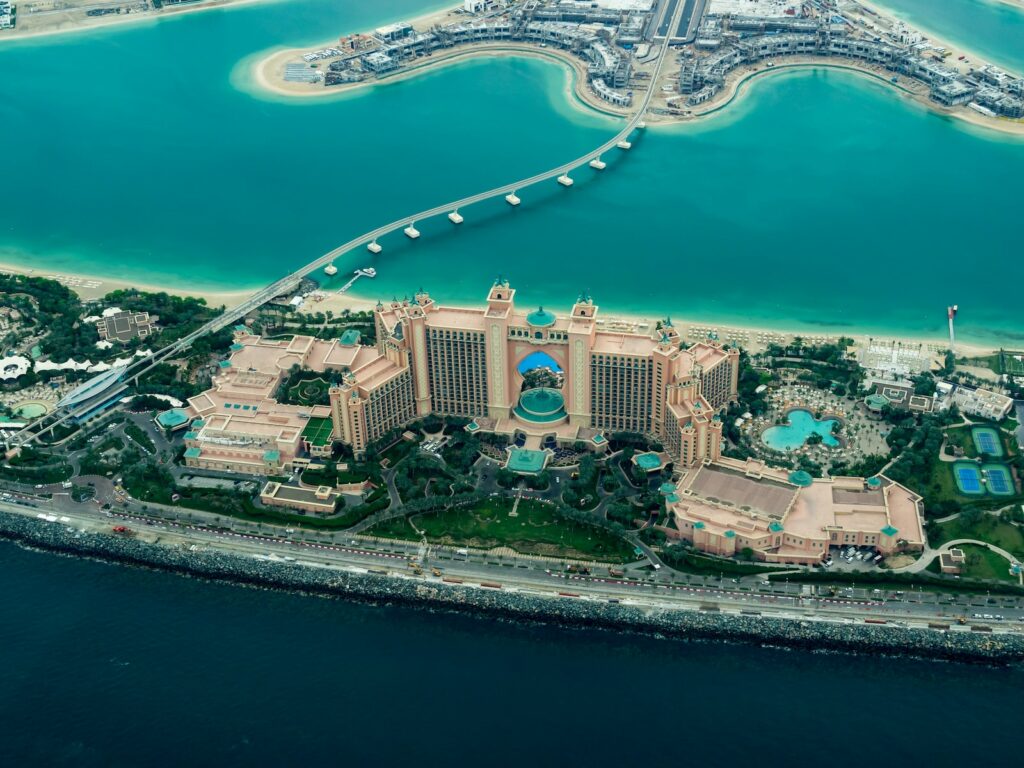Among the most desirable destinations in the world, the United Arab Emirates (UAE) stands out for several reasons.
That’s why entrepreneurs and families worldwide are eager to set up shop in the country and make it their permanent home.
Due to its high living level, tax-free salaries, and cosmopolitan atmosphere, Dubai has attracted people worldwide.
However, many people wonder if they can permanently move to Dubai or if their current situation is only transitory.
Here, we’ll talk about making Dubai your permanent home and the considerations you should make before moving in.
Can You Live in Dubai Permanently?
Yes, you can live in Dubai permanently. However, you must fulfill several conditions to be eligible for permanent residency.
A valid work visa, legal right to live and work in the country, and sufficient resources are the most common necessities for foreign workers.
A work visa and legal residency are prerequisites for long-term living in Dubai. To qualify for a resident visa in Dubai, you’ll need to show that you meet several requirements, including having a job offer in the city and not having any serious criminal convictions or financial difficulties.
Your company will normally sponsor your work visa and residence application.
One requirement for residency in Dubai is proof of sufficient financial resources. Having a reliable source of income, such as work, savings, or investments, is essential.
You’ll have to show proof that you can support yourself and your loved ones without help from the government.
How to Get Permanent Residency in UAE?
Obtaining an entry permit with the help of a sponsor is the single most significant step toward obtaining permanent residency in the UAE.
The Federal Authority for Identity and Citizenship and the GDRFA offer convenient smartphone apps allowing users to apply for or renew their citizenship remotely or in person.
Step 1: Your sponsor must apply for a Residency Visa to the General Directorate of Residence and Foreign Affairs (GDRFA).
Step 2: They must include the UAE Residence fee with their application submission. Your visa’s validity will determine the sum.
Step 3: If your application has been approved, you will have a Residence visa affixed to your passport. In addition, you will receive an Emirate ID card valid for the same period as your visa.
What Are the Different Pathways to Applying for Permanent Residency in the UAE?
There is no set time limit on how long you will take to become a permanent resident of the United Arab Emirates.
For instance, if you want to enter the field without a sponsor, it may take anywhere from one to ten years.
Still, it’s only possible to remain in one place for so long with a good reason. They need to qualify for one of the following visa categories: employee, investor, university-sponsored student, or permanent resident (retired).
1. Employment Visa Path
Gaining a job in the UAE is a great strategy to speed up obtaining permanent residency. In contrast hand, you may choose to work for or join the family business in Dubai.
The power of employer sponsorship is now in your hands. A certificate of residency, however, is an additional requirement.
If the prospective employee’s employer provides housing, they must make at least 3,000 AED per month to qualify for a permanent resident visa in the United Arab Emirates.
However, a monthly salary of 4000 AED is required if they own their own home.
2. Investor Path
Buying real estate in Dubai is a viable alternative to sponsoring yourself for a permanent visa to the nation. Although this route is reserved for better-income people, many international companies employ it.
The residency visa you can get by buying property in Dubai is valid for two years. This option will only be available if you acquire the property once it is finished and the purchase price is more than 1 million AED.
It does not allow the holder to work legally in the Emirate either. However, the main benefit of this visa is that the company does not have to be registered in the country.
3. Company Registration Path
If you want to start a business on foreign soil, you’ll need a local sponsor. This door opens when a business is established in the Emirate or one of its free zones.
However, when a business is established in a free zone in Dubai, the proprietor takes complete control of the corporation.
You must wait three years to obtain a resident visa through the firm registration route. However, it’s simple to renew after the fact.
Representatives from a Dubai-based firm will assist you with every step of the procedure and give you all the necessary paperwork.
4. Family Visa Path
People who are related to a foreign national fall under this category. Families often accompany applicants for permanent residency in the United Arab Emirates.
It’s wonderful news that they can apply for a resident visa for their spouse, children, and parents.
Family residency permits, salary verification statements, marriage certificates, and other forms of identification may be required to complete the application procedure.
However, there are requirements that applicants must meet before bringing their families.
A salary of 4,000 or 3,000 AED per month is required. The applicant’s minimum wage must be at least 10,000 AED if they intend to bring a parent along.
Additionally, there is a monetary outlay that must be made. It is necessary to apply for the entrance residence visa in advance, and there must be a 30-day lapse before the visa may be issued.
5. University Student Sponsor Path
UAE school-sponsored students fall within this category. In this case, the university submits your application for a permanent residence visa in its name.
However, if you’re a secondary school student at either a private or public secondary school and have a minimum 95-grade point average, you, too, can be considered an excellent student.
You can qualify if you have a 3.75 GPA or higher after four years as a university student in the United States, the United Arab Emirates, or any other country.
Conclusion
In conclusion, it is feasible to establish permanent residence in Dubai; however, this option is conditional upon meeting several requirements, including possession of a valid work visa, resident status, and sufficient financial resources.
Although life in Dubai is luxurious and exciting, securing permanent residency could take time and effort. To qualify for a resident visa, an ex-pat normally needs a job offer and a sponsor, typically their company.
Acquiring permanent residency in Dubai requires a solid financial history and a lack of criminal convictions.
Although Dubai may seem like a good choice for people searching for permanent residence, weighing the benefits against the costs and other factors is vital.










